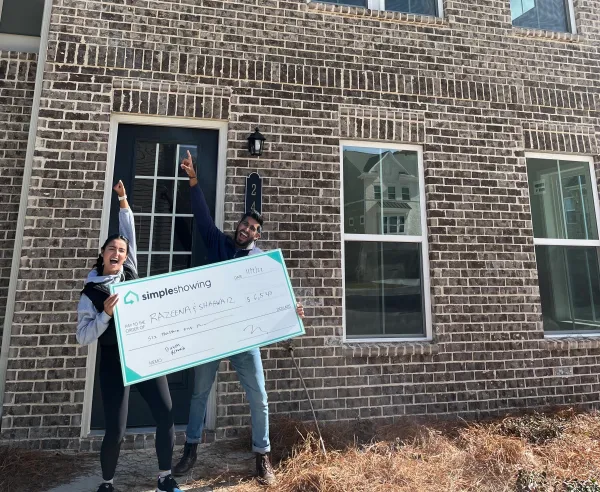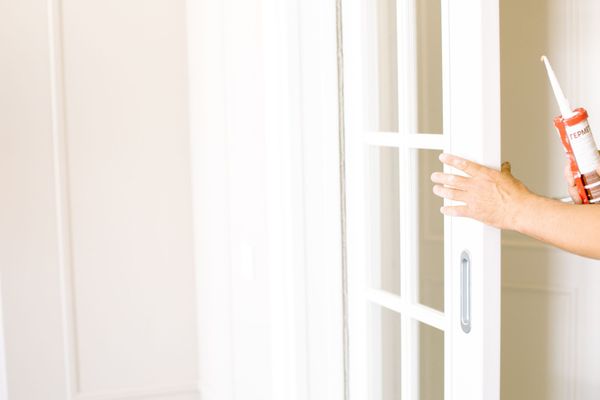If you're house hunting, you've invariably seen the term "PMI" before in conjunction with mortgages. If you've ever looked at a mortgage calculator, for example, you'll almost always see a line item that says "PMI." Sometimes there might be a monthly payment that appears there, and sometimes there won't be. As you may have guessed, PMI is something that you have to pay monthly on top of your mortgage under certain circumstances. So, what is PMI, and how can you avoid paying it in addition to your regular mortgage?
What Is PMI?
PMI stands for "private mortgage insurance," and it's insurance you have to pay that protects the bank if you default on your loan. That's right - this charge isn't for your benefit (mostly - as we'll see later, there is a potentially limited benefit for borrowers in some states). It's for the bank to lose less money if you can't pay your mortgage.
Private mortgage insurance typically costs about 0.5% to 1% of your total loan amount per year. If you have a $250,000 mortgage, that means your PMI costs will likely be between $1,250 and $2,500 annually. However, it is worth noting that every lender is different, and, as such, they have varying PMI providers. It's not impossible to have mortgage insurance that exceeds 1% per year under certain circumstances.
As a borrower, you cannot shop around for mortgage insurance, unfortunately. Therefore, you'll have to pay whatever your lender requires if you want the loan.
How Can I Avoid Paying This?
Given that PMI only benefits the bank and hurts your pocketbook, you're probably wondering if you can avoid PMI? The good news is that you can avoid paying these insurance costs altogether!
Banks require this insurance when you have less than 20% equity in your home. If you want to buy a $500,000 home, for example, and you only have $20,000 for a down payment, the bank will require you to pay PMI until you build $100,000 in equity. Or, put another way, until you have a $400,000 remaining balance on your loan.
Therefore, for most scenarios, the only way to avoid paying private mortgage insurance is to put at least 20% down.
There are some notable exceptions, though.
You can also avoid PMI altogether if:
· You get a VA mortgage. VA mortgages do not require PMI.
· You receive a NACA mortgage (this organization provides homeownership opportunities to low-to-moderate income households).
· You qualify for a federal or state mortgage program that does not have PMI.
If you're a veteran, getting a VA loan is probably the best way to avoid paying PMI. For all others, the best way is usually to put 20% down.
What Is PMI: Can I Stop Paying It on an Existing Loan?
Let's say you've already taken out a loan with 5% down. You weren't aware of the PMI charges, and now you'd like to have a loan without PMI. Is this possible?
Fortunately, the answer to that question is almost always yes. It's only a matter of how complicated it is.
Most conventional loans either allow you to ask to remove the PMI charge once you've hit 20% equity, or they will remove it automatically. You'll have to check your mortgage agreement to see what your bank offers.
Some loan types, like FHA loans, require PMI payments for the entirety of the loan. With these mortgages, you can always refinance to a conventional loan once you have 20% equity in your home. That will stop the PMI payments as your FHA loan will be no more.
How Does Private Mortgage Insurance Protect the Bank?
When looking at what is PMI, most discussions about this topic state that this mortgage insurance protects the bank. But, what precisely does it pay the bank if you default? Or, put another way, what is it about the 20% number that means you no longer have to pay this cost?
To illustrate what, precisely, PMI does, let's go through a simple example. Suppose that someone buys a $200,000 home with 5% down. Their mortgage balance is $190,000. After a year, the balance is $180,000, but that person loses their job and can no longer make the payments. After a long process, the bank forecloses on the property. The lender puts it on the market.
The only problem is that the market is soft now, and home prices have fallen. The bank accepts an offer for $160,000, less than the $180,000 the borrower owed. The mortgage insurance will pay that $20,000 difference to the bank.
As mentioned earlier in this post, there is PMI has a limited potential benefit to borrowers. Certain states, like Florida, are "recourse states," which means that banks can sue borrowers for any deficiencies on their mortgage after foreclosure. So, if you have a mortgage balance of $200,000 but the bank only gets $150,000, they can sue you for the remaining $50,000. In other states, like California, the bank doesn't have this option. These are "non-recourse states."
With private mortgage insurance, the bank is whole in the event of default. So, the bank won't necessarily have a motivation to sue you (they could, in theory, sue to cover the cost of the foreclosure process, but that's unlikely). However, the PMI company could still sue you for whatever they had to pay the bank to make them whole. That would require a separate lawsuit, and all communications go between the lender and the insurance company. The borrower has no say over any of the claim amount or process. It's not exactly the most straightforward deficiency judgment to win!
Therefore, having PMI may, under certain circumstances, shield you from a deficiency judgment. Or, at a minimum, it adds one more layer of indirection in the process.
What Is PMI? An Insurance Charge To Protect the Bank
Private mortgage insurance protects the bank, not you, the borrower. If you can avoid paying PMI, you should, since it has very little to no benefit for borrowers.
Most of the time, the most straightforward way to avoid paying PMI on new mortgages is to have 20% down. For existing ones, if you believe that you have 20% equity in your home and you're still paying mortgage insurance, look into your mortgage agreement or call your lender to see how you can remove that. Not having PMI can save you thousands per year!
Conclusion
The understanding of PMI or private mortgage insurance is essential for every prospective homeowner. It's imperative to negotiate with your mortgage lender carefully to help reduce the impact of your monthly mortgage insurance premium. The mortgage insurance costs can add a significant sum to your mortgage payments, especially if it's mandated by the Federal Housing Administration, but with informed choices, you can possibly avoid having to pay mortgage insurance.
Understanding the types of mortgage insurance and what exactly mortgage insurance cover provides will assist you in comprehending the importance and potential burden of PMI. How is mortgage insurance calculated? It's primarily based on the amount of your down payment and your credit score. It's worth noting that mortgage insurance payments are typically bundled into your mortgage payments, making them a seamless but potentially costly part of homeownership.
However, keep in mind that mortgage insurance premiums are not permanent. Once you have accrued a certain amount of equity in your home, usually around 20%, you may have the option to remove the PMI. Therefore, thorough planning and strategic financial moves can help you bypass this additional cost more swiftly, easing your journey towards full homeownership. So, arm yourself with knowledge and ensure you make an informed choice about your mortgage insurance.






